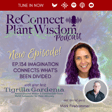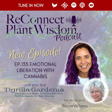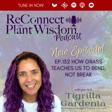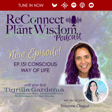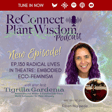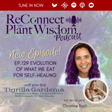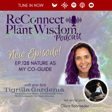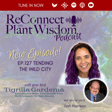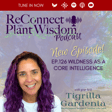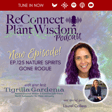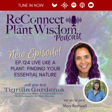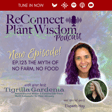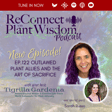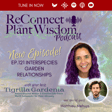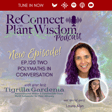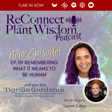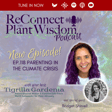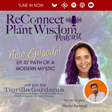
Ep.67 Eternal Forest with Evgenia Emets
Another captivating interview with interspecies artist, Evgenia Emets, about how she works creativity with plants and her ongoing project, "Eternal Forest," which aims to foster connections between humans and plant consciousness.
Evgenia shared her personal experiences with plants, emphasizing the importance of shifting perspectives, collaboration, and respect in co-creating with the natural world. Our discussion also touched on the interconnectedness of all consciousness, the potential for healing through reconnection with nature, and the role of the artist's voice in fostering human-plant relationships.
Evgenia Emets (b. 1979) is an international artist and poet working with forest ecology and community creating visual art, films, artist’s books and large-scale ecological artworks. Eternal Forest (launched 2018), an ongoing multidisciplinary project, marks an integration of ecological thinking into her art. Eternal Forest is creating a network of 1,000 forest sanctuaries to be protected for 1,000 years through art and community. Evgenia’s visual works and artists’ books are in museums, libraries and private collections in the UK, Europe, Japan and Russia.
Topics Covered about eternal forest
➡️ Plants know how we perceive the world and can tune information for us
➡️Shifting perception to aligning Human Time to Forest Time
➡️ Writing and creating art from the perspective of plants and forests
➡️ How working with plants fits into a larger picture: regeneration, reforestation, biodiversity preservation...
➡️ Experiencing and living Plant Consciousness
☝🏽ReConnect with Plant Wisdom podcast Ancient and modern knowledge from biology to spirituality about the wondrous ways plants help you lead a Naturally Conscious life. Subscribe on your favorite podcast player.
👉🏽 Join the Naturally Conscious Community to nourish human-plant relationships
// Let's work together: book a Discovery Call
// EcoConscious Business Partners:
Communicate with Plants via Music
Shop Here
// Opening and Closing music by Steve Sciulli and Poinsettia from The Singing Life of Plants
// Socialize with me
Facebook | Instagram | LinkedIn | Youtube

